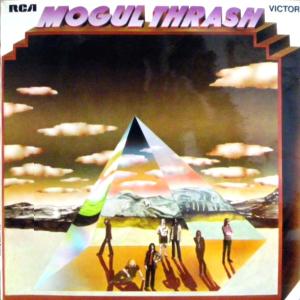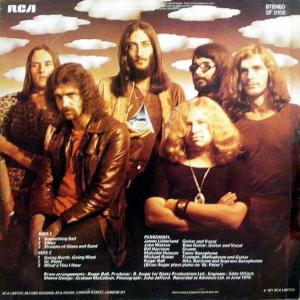Mogul Thrash


| Tracklist | |||
| A1 | Something Sad | ||
| Notes: |
Roger Ball - Written-By |
||
| A2 | Elegy | ||
| Notes: |
James Litherland - Written-By |
||
| A3 | Dreams Of Glass And Sand | ||
| Notes: |
James Litherland - Written-By |
||
| B1 | Going North, Going West | ||
| Notes: |
James Litherland - Written-By |
||
| B2 | St. Peter | ||
| Notes: |
Brian Auger - Piano |
||
| B3 | What's This I Hear | ||
| Notes: |
James Litherland - Written-By |
||
Roger Ball - Arranged By [Brass], Alto Saxophone, Baritone Saxophone, Soprano Saxophone
John Wetton - Bass Guitar, Guitar, Vocals [Vocal]
Graham McCallum - Design [Sleeve]
Bill Atkinson - Drums
Eddy Offord - Engineer
James Litherland - Guitar, Vocals [Vocal]
John Jefford - Photography By
Brian Auger - Producer
Malcolm Duncan - Tenor Saxophone
Mike Rosen - Trumpet, Mellophone, Guitar
Recorded at Advision Ltd. in June 1970.
Cover laminated on front only.

